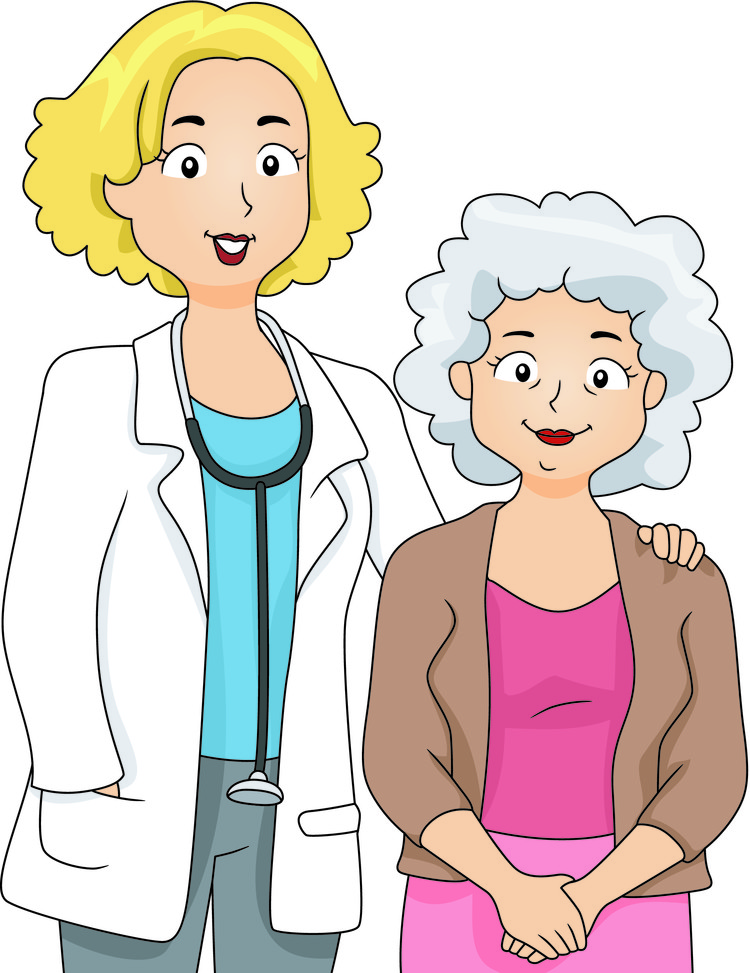I think my doctor is a hero and I once told him so. He’s a geriatrician—a specialist in treating older people—and a rare find.
From what I read, I can guess he earns less than most specialists and has less prestige within his profession, despite his considerable skill and experience. I’m lucky to have him because there’s a tremendous shortage of geriatricians in this country. The United States has only about 7,500 today—that’s roughly one for every 1,600 older Americans—and the situation will get much worse as boomers swell the number of older patients.
Most doctors aren’t trained in geriatrics and don’t know much about treating elders. That’s a shame because older people are different from the young and the middle aged. For one thing, our symptoms may not be the same. A heart attack usually causes crushing chest pain in younger adults, but if I have a heart attack, I may simply feel extremely tired, confused and short of breath. If I develop pneumonia, the first indication might be not a fever but a fall—a sign that the disease has weakened me.
Older adults also react differently to drugs: we’re more sensitive to medications, especially after 85. (I’m not there yet, but with luck l will be.) If my daughter takes a sleeping pill, its effects will generally wear off in eight hours, but if I take one in the not-so-distant future, I may feel groggy for as long as 96 hours—that’s four days! Add to this the fact that many elders take a slew of medications that can interact, and it’s no wonder so many are hospitalized because of adverse reactions to drugs.
Why are there so few geriatricians? One reason is that when medical schools offer courses in geriatrics, they seldom require students to take them. Given the choice, fewer than 3 percent of students enroll in the courses, according to the American Association of Medical Colleges.
Potential income partly explains that. Geriatrics is one of the lowest-paid specialties because insurers, including Medicare, spend much more for procedures than they do for a doctor’s time. They assume physicians can get their patients in and out in 15 minutes and they pay accordingly. But it often takes more than 15 minutes to treat an older individual who has several disorders, so geriatricians see fewer patients and earn less. You can hardly blame young doctors for choosing higher-paying specialties—most graduate from med school deeply in debt.
Geriatrics is also short on prestige. Doctors with whopping incomes who do high-tech medicine have more status in the medical profession.
And ageism plays a role. Researchers report that many medical students have a poor opinion of patients my age and are convinced it will be depressing to treat us. According to at least one study, this is an idea they acquire in their third and fourth years, gleaned from what they’re told by the doctors who train them. The students come away assuming elders will be not only difficult but unrewarding to treat, that most are senile and/or have a poor prognosis, and that, in any case, certain diseases are inevitable in old age.
None of that is true. Part of the problem is that the only older patients most students see are acutely ill and hospitalized or in a nursing home.
There are ways to improve the situation, and some efforts are being made. The Affordable Care Act (aka Obamacare) is now providing bonuses for some of the time-consuming things geriatricians do, such as reviewing the medications a patient is taking—but only through 2015. South Carolina is paying off student loans for doctors trained in geriatrics or geriatric psychiatry, provided they agree to practice in the state for five years. A few foundations have stepped in to fund geriatrics programs in medical schools or to support fellowships or faculty positions in geriatrics.
The Silver Century Foundation is currently funding a program designed to counter medical students’ mistaken ideas about elders. Created by New Jersey’s Robert Wood Johnson Medical School, the program enlists older people who live in the community to mentor second-year med students. The students visit their mentors regularly in their homes to review their health status. While there, they learn what ordinary, reasonably healthy older people are like and what their lives are like outside medical settings.
Med students should take note: on surveys, geriatricians report more job satisfaction than any other specialists. The other day I asked my doctor about that. What continually surprises him about his work, he said, is the variety—of life experiences, personalities and diseases. In older people, a simple problem like a cold isn’t always simple, he said, and that keeps office hours interesting.
But most experts agree it’s already too late to train enough geriatricians to meet the needs of aging boomers. Instead, they recommend that geriatricians teach the basics of their specialty to other doctors and health professionals.
Who needs a geriatrician (assuming they can find one)? People over 75 who have several chronic medical problems, according to experts. I have to admit that I don’t qualify. Yet. I lucked out when I moved into a retirement community that includes doctors trained in geriatrics in its medical center. But all of us who live long enough will qualify eventually. We can only hope the health care system gets its act together in time to make a difference in our lives.

Flora Davis has written scores of magazine articles and is the author of five nonfiction books, including the award-winning Moving the Mountain: The Women’s Movement in America Since 1960 (1991, 1999). She currently lives in a retirement community and continues to work as a writer.



